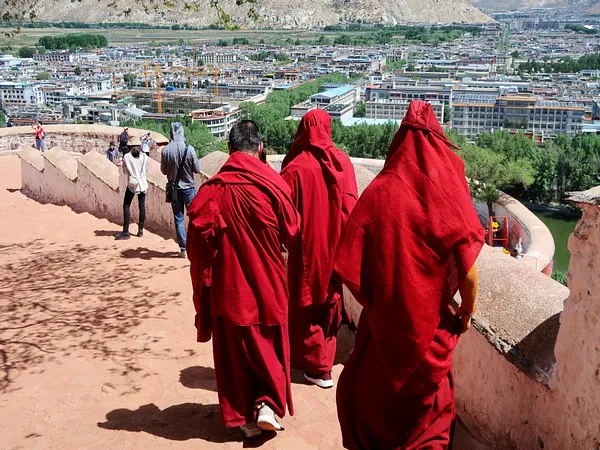Pro-Tibet and human rights groups will on March 5 hold a march in Taipei to show solidarity with Tibetans and other minority groups facing oppression in China, Taipei Times reported.
The march held annually in early March since 2004, was originally intended to commemorate those who died during a Tibetan uprising against Chinese rule that began on March 10, 1959.
It has grown over the years in terms of its size and agenda, the organizers said, adding that this year’s event is also meant to show support for people facing oppression in Xinjiang and Hong Kong, Taipei Times reported.
Kelsang Gyaltsen Bawa, the Tibetan government-in-exile’s representative to Taiwan, on Friday, urged the Taiwanese to learn a lesson from those who face oppression by the Chinese government.
“Taiwan is a beacon of democracy and it must not go down the same path as Tibet, Xinjiang and Hong Kong,” Gyaltsen told a news conference outside the legislature in Taipei.
Gyaltsen, who heads the Tibet Religious Foundation of His Holiness the Dalai Lama, said China invaded Tibet in 1950 and a year later forced Tibetans to agree to the Seventeen-Point Agreement on the “return” of Tibet to China, Taipei Times reported.
He said that, Beijing has breached clauses in the agreement that says religion and customs should be respected, instead implementing policies aimed at fundamentally changing Tibet.
These changes led to the uprising of Tibetans against the Chinese government in March 1959, he said.
Tibetans inside and outside of Tibet continue to be persecuted for their culture and beliefs by Chinese authorities, wrote Janet Rice, a Senator in the Australian Parliament, for a report in Tibet Rights Collective.
According to Tibet Rights Collective, Tibetan Uprising Day is observed on March 10 each year. It commemorates the 1959 Tibetan uprising, which ultimately resulted in a violent crackdown on Tibetan independence movements and in the flight of the Dalai Lama into exile.
According to estimates, over a million Tibetans have since been killed and, with the Chinese government’s policy of resettlement of Chinese people to Tibet, Tibetans have become a minority in their own country.
A group of UN special rapporteurs had in November last year, issued a statement noting their grave concerns. They said they had received information:”… concerning what appears to amount to a policy of acculturation and assimilation of the Tibetan culture into the dominant Han Chinese majority, through a series of oppressive actions against Tibetan educational, religious and linguistic institutions, in contradiction with the right to freedom of religion and belief, the right to education and cultural rights of the Tibetan people.”

